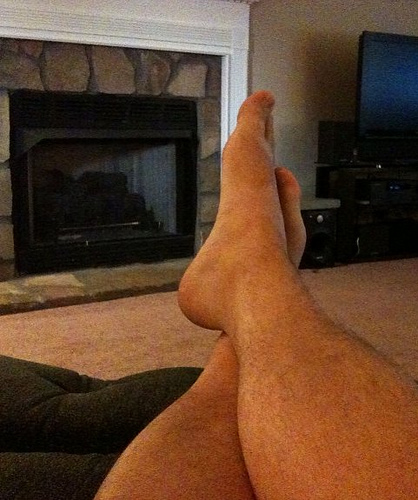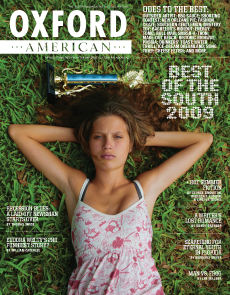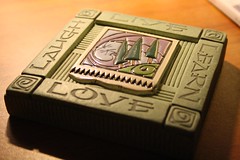
Life isn’t always exciting and sometimes you’re better off kicking back and finding joy in the ordinary.
Sometimes our lives are stimulating and filled up with trips to the beach and amusement parks. More often than not, we stick closer to home or just stay at home.
Life is better when you can find joy in the peaceful moments. Joy abounds in the pews of an empty sanctuary, in the quiet dark belly of a cave, beside a running stream in the woods, or in a recliner with a fan spinning lazily overhead. If you can latch onto those peaceful moments—really take the time to suck them into your being and let them fill you up—they can bring you immense satisfaction and inspiration.
I find joy in stillness and think everyone can benefit from just being. Stillness is the basic ingredient of so many things; prayer, meditation, yoga. Being idle doesn’t necessarily mean you are being lazy or slothful. It just means you are open to your surroundings and allowing your mind time to make random connections.
One well-documented source of joy is found in spending the day reading. Books can take your imagination from the steppes of Russia to another galaxy and everywhere in between. You can live another person’s life or watch strangers live their lives. You can learn about the latest breakthroughs in particle physics or new ways to prepare meals.
Tomorrow, we are going out as a family to have some fun. We were going to take an expensive day-trip to fill our lives up with excitement, but instead we’re going to dial it back a notch. We’re going to go to a park or to the woods. We may carry a picnic basket or we may just enjoy each other’s company.
I think we’re just going to roam and see where the winds take us.
We may look for life’s answers in the bark of a gnarled tree, or listen for God in the running water. I’m taking us on a quest to find joy in the ordinary.
Oxford American
 If you aren’t familiar with Oxford American magazine you should definitely get to know it. The print magazine is gorgeous and brings real joy to checking the mail and the Web site has undergone some major revisions lately. If you are a fan of all things Southern, go there now.
If you aren’t familiar with Oxford American magazine you should definitely get to know it. The print magazine is gorgeous and brings real joy to checking the mail and the Web site has undergone some major revisions lately. If you are a fan of all things Southern, go there now.
A sideways view of optimism
A quote by Owen Wilson:
I think of myself as a doom person. I’m a worrier. But I like the idea of being an optimist. Maybe I’m the kind of optimist who deep down knows it’s not going to work.
Courtesy of IMDB.
Community
The evolution of community, and the occasional need to go back to the old days, has been on my mind lately. To help my thoughts percolate, I began by taking a look at the definition of Community, courtesy of the American Heritage Dictionary, 4th Edition (courtesy of the iPhone application iTunes link):
Community:
1a.A group of people living in the same locality and under the same government
1b. The district or locality in which such a group lives
2a. A group of people having common interests
2b. A group viewed as forming a distinct segment of society
3a. Similarity or identity
3b. Sharing, participation and fellowship
4. Society as a whole; the public
5a. a groups of plants and animals living and interacting with one another in a specific region under relatively similar environmental conditions
5b. The region occupied by a group of interacting organisms.
from Latincommunitas, fellowship, fromcommunis, common
Community is basically a gathering of beings, be they human or beast. With the scaffolding built by that definition of community, I now wonder how many people must be together to comprise a community? Can a couple be a community? Does it take three or more people? Ten or more?
By definition, most people encounter dozens of communities every day whether it is at a family picnic or with parents and children at the baseball field on a cloudy Saturday morning or at Sunday School on a sunny Sunday morning, but do we appreciate or take advantage of these communities?
I have a tendency to avoid community. I like to hole up in my compound and stay there because I don’t much care for people. I choose where to shop based on the store that draws the fewest people through it’s doors (i.e. going to a small grocery store for a few things rather than fighting the crowds at Wal-Mart). When I end up with good friends though, I enjoy a good conversation.
Before the Internet, friends used to meet for dinner and maybe play cards or just to hang out and talk and share ideas. The history of the salon goes back for centuries. This, from Wikipedia:
A salon is a gathering of stimulating people of quality under the roof of an inspiring hostess or host, partly to amuse one another and partly to refine their taste and increase their knowledge through conversation and readings, often consciously following Horace’s definition of the aims of poetry, “either to please or to educate” (“aut delectare aut prodesse est”). The salons, commonly associated with French literary and philosophical salons of the 17th century and 18th century, were carried on until quite recently in urban settings among like-minded people of a ‘set’: many 20th-century salons could be instanced.
For many years, and many years ago, I was an active part of the Internet community. I spend a lot of time on the Net now, but I use it to read and learn more than to interact with others. I spent a lot of time in newsgroups and IRC, but have drifted away from those forums. Sites like Facebook represent the Internet community now and I’m beginning to seek out some connections there now. It’s not the same as chatting with friends all over the U.S. as a group on IRC, but it’s definitely more convenient.
But the Internet has broken down community in many senses. If someone pulled the plug, would you be able to reach many of the people you are familiar with? The people you follow on Twitter. The people you friend on Facebook. Would your contact with them be completely cut off? Do you have their phone numbers? Do you even have their e-mail addresses? Do you know how to find them, shake their hand, and say “Hello?”
Tangent: Think about when the word “friend” became a verb.
I would like to reinstate the salon, to have friends over to the house for coffee or a couple of drinks and just be together. Maybe we could discuss the books we’ve read or share items we’ve written.
As much general dislike I have for people—I cannot abide stupidity, and there is a lot of it in the world—I love my friends and would like to see a handful of them more often. It may be time to send out some invitations and entertain a bit this summer. It may be time to fire up the grill, cook some meat and vegetables, and just be together with others.
This blog gets a few thoughts out of my head, but there is still a lot banging around up there in my brain. There may be more on the modern sense of community coming from me.
Laugh Live Learn Love
I have this piece of art crafted of ceramic and clay that I bought a local gallery. It has four great lessons burned into it.
Live
You can’t help but live until you die, and if you aren’t busy living then you’re busy dying. At least that’s what Bob Dylan has to say on the matter. Living should come as the most easy and natural thing in the world to do. Your body just does it, it lives, for good or ill and whether you like it or not.
Learn
Learning. Now that is more of a choice, isn’t it? Maybe it isn’t. Learning is a part of evolution (whether you believe in it or not). Fight or flight, you learn from your environment if nothing else. Sometimes, you may make an enlightened decision to continue learning in order to continuing growing professionally or spiritually.
Love
Ah love. Love is lot like learning. Sometimes love grows on you and sometimes love is learned. I know I didn’t love broccoli as a child, but it grew on me. I suppose I don’t really love broccoli now, but it’s a means to a metaphor.
Sometimes, though, and this is the sweet love, love just grows on you as naturally as your hair and fingernails keep growing. You just can’t stop it. That’s the special kind of love you have for your family. That’s the special kind of love I have for my family.
Laugh
I remember having Readers Digest around the house and one of the first things I would flip to was “Laughter is the Best Medicine.” I think the publication offered $100 for jokes that made it into that section. Some were funny and some weren’t, but that title says a lot, doesn’t it?
Sometimes, I find it difficult to laugh. Sometimes, I can’t even summon up a chuckle. Those are dark times. When I finally lighten up and crack a grin across my face, and sometimes I mean to and sometimes it just happens, well, things feel a little bit better.
Conclusion
This has been a rough week. I’m going to reflect on the lessons engraved in this little work of art. Four simple lessons — Live, Learn, Love, and Laugh. After all, laughter is the best medicine, and when the laughter stops there may be nothing left to do but cry.
Seeking sociology
I recently enjoyed reading “Blink,” a book by Malcom Gladwell. I’ve been reading similar books for professional development at work and I’m finding how much joy any writing even distantly related to sociology brings to me.
A guilty admission: I never really understood what sociology was when I was considering what to major in at college. Even I had grasped what it was, I never would have chosen that as a major at that time in my life. Looking back, I wish I had put more focus on sociology and listened a little more closely during my introductions to philosophy and psychology during my freshmen year.
The courses I was interested in when I was in college, such as math and chemistry, are subjects that draw my attention any more—I actively avoid those subjects now—and the ones that pushed me away are what I am drawn to these days. Funny how life works.
So now, I’m finding in interest in the study of people. I should have known. In my younger days I would enjoy going to hang out at the mall. Not to shop, but to wander around or sit in the food court with an obnoxiously large Coke and maybe some fries and just sit and watch people. Sometimes I would do it to make fun of them. Sometimes I would look at them and try to figure out what their lives were like based on their clothes, their hair, the way they carried themselves. I tried to figure out if they were happy or sad, on a mission or killing time. My best friend in I would watch people walking along and recreate their conversations, each one of us taking a part and just running with it until the giggles brought our project to a temporary halt.
Sociology is one of those degrees similar to the major I pursued, English, in that there is no defined career that follows earning a diploma. They are both useful in so many areas, but you don’t major in English to be a professional book reader and paper writer per se. Chemistry majors become chemists. Engineering majors become engineers. MBAs work in business. CPAs become accountants. I reckon English majors become dreamers on a path to somewhere. I suppose I majored in English 1) because I enjoy(ed) the subject materials and 2) to follow the romantic notion of becoming a writer. I succeeded in becoming a writer, but it wasn’t nearly so romantic a life as I once thought.
Another recent influence combines the two subjects I’m rambling about now, the late David Foster Wallace. I’ve only just begun soaking up his material and haven’t tapped into his life’s masterwork “Infinite Jest,” but I’ve found his writing to be extensive and methodical and in-depth and it carried with it a keen insight into human interaction as well as human reaction.
Come to think about it, I’ve always been drawn to writers like Chuck Klosterman and Hunter S. Thompson with their observational reportage; their sharp analysis of the situations they are watching.
So maybe I, too, can someday mix my longtime love of reading, writing, and watching with my new personal study of sociology. In fact, I think my journey has just begun with this post.
The Grotesque in Southern Fiction
Every writer, particularly Southern writers, should read Flannery O’Connor’s piece “Aspects of the Grotesque in Southern Fiction”. In fact, I recommend some serious study of the piece, which was published in 1960 but maintains its relevance today.
These are not times when writers in this country can very well speak for one another. In the twenties there were those at Vanderbilt University who felt enough kinship with each other’s ideas to issue a pamphlet called, I’ll Take My Stand, and in the thirties there were writers whose social consciousness set them all going in more or less the same direction; but today there are no good writers, bound even loosely together, who would be so bold as to say that they speak for a generation or for each other. Today each writer speaks for himself, even though he may not be sure that his work is important enough to justify his doing so.
When I think of the great authors, most of them are old or dead. I can only think of a handful of living writers who create my brand of “great literature.” Fiction writers of my generation seem to be fading into a world of schizophrenic blog posting (like this one!). There is a good deal of reportage out there—nonfiction seems to be doing OK—but fiction seems to be on the ropes.
Generation X and Y writers seem to be a bloodthirsty lot. Writers who are my age appear to enjoy taking potshots at each other. Every man for himself. Maybe it’s a method of raising their “brand awareness” or if it’s genuine dislike for each other, but there seems to be some tension between some writers.
O’Connor appears to be right. I know of no band of writers who are standing up to speak for our generations.
If you are a Southern writer, that label, and all the misconceptions that go with it, is pasted on you at once, and you are left to get it off as best you can. I have found that no matter for what purpose peculiar to your special dramatic needs you use the Southern scene, you are still thought by the general reader to be writing about the South and are judged by the fidelity your fiction has to typical Southern life.
I aspire to write The Next Great American Southern Gothic Novel™, but must consider O’Connor’s wisdom. The South has produced more than its share of great authors who need little introduction (Faulkner, Welty) and others who produced great work but aren’t as well known (Larry Brown for instance, who died far too soon). In fact, there are so many great Southern authors that a new writer from the South must truly shine to be seen among such gems of literature.
Publications such as Oxford American, subtitled “The Southern Magazine of Good Writing,” and Garden & Gun promote the kind of writing and record of the South I love, but again, much of that writing is limited (by necessity given the format) to short stories and reportage.
Note: I first discovered Larry Brown in the pages of Oxford American’s Faulkner issue published in May/June 1995. I still have a copy and you can own one too.
I would cherish the honorable title of Southern Author, but that badge of honor doesn’t come easy and many don’t see it as honorable.
Why are there so many freaks in the South?
In one of my favorite excerpts from O’Connor’s essay, she presents a theory on the prevalence of freaks, of the grotesque, in Southern fiction:
Whenever I’m asked why Southern writers particularly have a penchant for writing about freaks, I say it is because we are still able to recognize one. To be able to recognize a freak, you have to have some conception of the whole man, and in the South the general conception of man is still, in the main, theological. That is a large statement, and it is dangerous to make it, for almost anything you say about Southern belief can be denied in the next breath with equal propriety. But approaching the subject from the standpoint of the writer, I think it is safe to say that while the South is hardly Christ-centered, it is most certainly Christ-haunted. The Southerner, who isn’t convinced of it, is very much afraid that he may have been formed in the image and likeness of God. Ghosts can be very fierce and instructive. They cast strange shadows, particularly in our literature. In any case, it is when the freak can be sensed as a figure for our essential displacement that he attains some depth in literature.
That paragraph, in a sparse 181 words, says so much about the character of the South. It is the best definition, or at least summation, of the South I’ve yet encountered. Religion still plays a major role in the South, one of the last strongholds of Christianity in the nation. With such a sure grounding in theology, Southern fiction is riddled with preachers and Bible salesmen, snake handlers and visions of God.
I appreciate O’Connor’s distinction “that while the South is hardly Christ-centered, it is most certainly Christ-haunted.” Many in the South place their faith in Christ, but I think many more are simply haunted by Him. Christ was the bogeyman that was going to send the bad children to hell. God was the one passing fiery judgement on those who might be different from the rest. And God certainly sentenced the vile to eternal damnation. Eternity is forever, and the possibility that you could burn for all infinity was enough to keep many on a decent path if not a holy one.
Christ isn’t the only ghost in the South. Georgia and the surrounding states are filled with old cemeteries that hold the remains of the long dead. The Civil War left enough ghosts behind to write about not to mention the slavery before that and the Trail of Tears that pushed the Indians west against their will. Many angry wraiths and downtrodden spirits linger in the South and many of their stories are waiting to be told.
Those writers who speak for and with their age are able to do so with a great deal more ease and grace than those who speak counter to prevailing attitudes. I once received a letter from an old lady in California who informed me that when the tired reader comes home at night, he wishes to read something that will lift up his heart. And it seems her heart had not been lifted up by anything of mine she had read. I think that if her heart had been in the right place, it would have been lifted up.
In order for the Southern author to remain true to themselves and to the nature of the South, they must reach into their soul and back through their heritage. O’Connor didn’t want to produce work that appeased a tired soul at the end of the long day. She wanted to challenge them, to force them to face the grotesque nature of society and all of its darkness. By recognizing that darkness, it makes the light of goodness in the world shine that much brighter.
In her closing paragraph, O’Connor said:
The problem for such a novelist will be to know how far he can distort without destroying, and in order not to destroy, he will have to descend far enough into himself to reach those underground springs that give life to big work. This descent into himself will, at the same time, be a descent into his region. It will be a descent through the darkness of the familiar into a world where, like the blind man cured in the gospels, he sees men its if they were trees, but walking. This is the beginning of vision, and I feel it is a vision which we in the South must at least try to understand if we want to participate in the continuance of a vital Southern literature.
For more information about Flannery O’Connor, you can visit the obligatory Wikipedia page, her childhood home in Savannah, Ga., or visit the farm in Milledgeville, Ga., where she lived out her days in the South.

